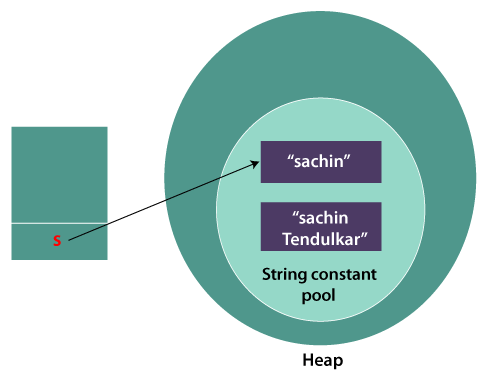Why Are Strings Immutable in Java? Key Reasons and Benefits Described
Why Are Strings Immutable in Java? Key Reasons and Benefits Described
Blog Article
Unalterable Strings: A Secret Component in Ensuring Data Consistency and Dependability
In the world of information monitoring, the importance of unalterable strings can not be overstated. The concept of immutable strings goes beyond plain triviality; it is a linchpin in the facility internet of information governance.
The Idea of Immutable Strings
Immutable strings, a fundamental idea in programming, refer to strings that can not be changed when they are created. Essentially, as soon as a string worth is designated, any type of operation that shows up to modify the string in fact develops a new string. This immutability makes certain data consistency and reliability in applications, as it avoids unexpected changes to the initial information.
Advantages in Data Uniformity

Information uniformity is essential in various facets of software program growth, consisting of database monitoring, multi-threaded environments, and distributed systems (Why are strings immutable in Java?). Unalterable strings contribute considerably to accomplishing this consistency by preventing information corruption as a result of simultaneous gain access to. In scenarios where multiple processes or strings communicate with the same data at the same time, unalterable strings work as a safeguard versus race conditions and synchronization problems
In addition, the immutability of strings simplifies debugging and screening processes. With unalterable strings, developers can rely on that once a string is set, it will continue to be the same, making it less complicated to map the source of mistakes and making sure that examination cases create consistent results. This integrity in data managing eventually results in extra stable and durable applications.

Applying Unalterable Strings
Guaranteeing the immutability of strings needs a thoughtful method to their implementation in software application growth. One essential approach is to make string classes in a manner that prevents modifications as soon as a string item is produced. By making strings unalterable, developers can enhance information consistency and reliability in their applications.
To carry out unalterable strings efficiently, designers need to favor developing new string items rather than changing existing ones. This practice makes sure that as soon as a string is designated a value, it can not be altered. Additionally, any type of procedure that shows up to customize the string must produce a brand-new string with the wanted modifications rather than changing over at this website the original.
In addition, utilizing unalterable strings can simplify concurrency monitoring in multi-threaded atmospheres. Considering that immutable strings can not be altered after production, they can be securely shared amongst numerous threads without the danger of information corruption.
Role in Reliability Guarantee
In software development, the use of immutable strings plays an essential function in guaranteeing the dependability of information procedures. Immutable strings, as soon as produced, can not be changed, making certain that the information they stand for stays regular throughout the application's execution. This immutability property gives a level of guarantee that the information being refined will not be unintentionally changed, leading to unforeseen results or mistakes in the system.
By including immutable strings right into software application style, programmers can boost the integrity of their applications by reducing the risks connected with mutable information - Why are strings immutable in Java?. Unalterable strings assist in protecting against information corruption or unintentional alterations, which can be particularly essential when dealing with sensitive info or when data stability is paramount
Additionally, using immutable strings streamlines simultaneous processing, as multiple strings can securely accessibility and share string data without the danger of one thread changing the web content while one more reads it. This element contributes substantially to the total integrity of the software program system, making certain regular and predictable actions in information dealing with procedures.
Applications and System Combination
The smooth combination of unalterable strings into various applications and systems is pivotal for making certain durable data uniformity and reliability across diverse technical settings - Why are strings immutable in Java?. Unalterable strings play an essential function in enhancing the integrity of information exchanges and interactions within complex software program communities. By incorporating unalterable strings right into applications, designers can reduce the threats associated with data meddling, unapproved modifications, and unintended changes, therefore fortifying the overall security position of the system
In the context of system combination, unalterable strings work as a fundamental aspect for developing safe and secure communication networks and assisting check here in smooth information transfers in between different elements. Their immutable nature makes sure that data transferred between systems continues to be verifiable and the same, decreasing the probability of incongruities or errors that can endanger the honesty of the entire system. In addition, unalterable strings can enhance interoperability in between inconsonant systems by offering a standard format for data representation, enabling much more effective information processing and exchange protocols throughout interconnected systems. By embracing unalterable strings in applications and system assimilation procedures, organizations can strengthen their data infrastructure and maintain the dependability and uniformity of their information assets.
Final Thought
To conclude, unalterable strings play a vital role in maintaining data uniformity and reliability in numerous applications and system integrations. By guaranteeing that strings can not be altered as soon as produced, the honesty of information is preserved, reducing the risk of disparities and errors. Applying unalterable strings can substantially improve the reliability of systems, eventually causing even more precise and dependable information handling.

Report this page